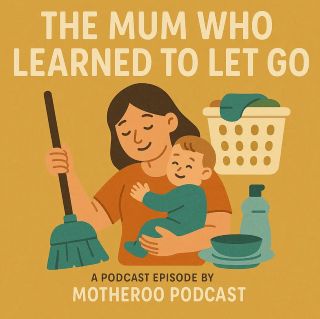Maternal imposter syndrome is a pervasive issue affecting many mothers, where they feel an overwhelming sense of inadequacy despite their best efforts. This phenomenon is characterised by the belief that no matter how much they do, they should have done more, even when they’re already trying their hardest. Many mothers struggle with the notion that they aren’t “good enough,” often comparing themselves to unrealistic parenting standards or the highlight reels of other mums on social media.
This self-doubt stems from societal pressure, social media comparisons, and the immense responsibility of raising a child. It can lead to feelings of guilt, anxiety, and exhaustion, even when there’s no real failure at play. For instance, a mother might feel like a failure if her child doesn’t sleep through the night or if they don’t follow a set routine, despite these being common challenges faced by many parents. The reality is that perfect parenting doesn’t exist, and most mothers are doing far better than they give themselves credit for.
Real-Life Experience
I recall the early days of motherhood, feeling utterly overwhelmed and uncertain. The pressure to be perfect, combined with the lack of control over my child’s unpredictable behaviours, made me feel like an imposter. I spent countless hours researching and trying different methods to soothe my baby, only to feel like I was making it up as I went along. This sense of inadequacy was exacerbated by social media, where everyone seemed to have it together except me. However, as time passed, I realised that these feelings were not unique to me and that many mothers face similar struggles.
Overcoming Maternal Imposter Syndrome
Recognising these feelings and practising self-compassion can help mothers see that their effort, love, and presence are more than enough. It’s essential to set realistic expectations and focus on small wins rather than striving for perfection. By acknowledging that parenting is a learning process and that it’s okay to make mistakes, mothers can begin to break free from the cycle of self-doubt and guilt.
Moreover, research highlights that parenting styles and family dynamics can significantly influence children’s psychological well-being, including the development of impostor feelings in adolescents. Understanding these dynamics can help parents address their own imposter syndrome while fostering a supportive environment for their children.
Recent studies have shown that parental authoritarian styles can contribute to impostor feelings in adolescents, highlighting the importance of supportive parenting. Imposter syndrome in parents, particularly mothers, is influenced by factors such as social media comparisons and societal expectations. Personal experiences of feeling like an imposter in parenting are common, often exacerbated by societal pressures and unrealistic expectations. Motherhood imposter syndrome is characterised by feelings of inadequacy and self-doubt, which can negatively impact daily life and relationships.
In conclusion, maternal imposter syndrome is a common yet debilitating issue that affects many mothers. By acknowledging its roots in societal pressure and unrealistic expectations, and by practising self-compassion and setting realistic goals, mothers can work towards overcoming these feelings and embracing their role with confidence.
Citations
- https://pmc.ncbi.nlm.nih.gov/articles/PMC9955030/
- https://extension.unr.edu/publication.aspx?PubID=5185
- https://www.mffy.com/blog/i-felt-like-an-imposter-how-i-learnt-to-embrace-realistic-parenting
- https://www.choosingtherapy.com/motherhood-imposter-syndrome/
- https://www.independent.co.uk/life-style/health-and-families/imposter-syndrome-mother-baby-fear-facebook-ultimate-mom-challenge-nevada-a8301711.html
- https://momwell.com/blog/imposter-syndrome-in-motherhood
- https://drkaurtherapy.com/matrescence-and-imposter-syndrome-a-working-mums-guide-to-self-doubt/
- https://www.imom.com/imposter-syndrome-in-women-motherhood-edition/
- https://www.ncbi.nlm.nih.gov/books/NBK585058/
- https://www.tandfonline.com/doi/full/10.1080/0020174X.2022.2042379
- https://www.nature.com/articles/d41586-024-00953-5
- https://www.nytimes.com/2020/04/15/parenting/casey-wilson-motherhood.html
- https://www.nytimes.com/2019/11/10/parenting/imposter-syndrome-newsletter.html
- https://www.mother.ly/life/motherhood-the-ultimate-case-of-imposter-syndrome/
- https://www.paulineroseclance.com/pdf/ip_high_achieving_women.pdf
- https://abc7news.com/casey-rose-wilson-motherhood-imposter-syndrome-kathryn-hahn-instagram/5730316/
- https://www.psychologytoday.com/au/blog/shouldstorm/201910/do-you-have-mompostor-syndrome
- https://www.katechristie.com.au/i-caught-imposter-sydrome-from-motherhood/
- https://www.mentalhealthjournal.org/articles/commentary-prevalence-predictors-and-treatment-of-imposter-syndrome-a-systematic-review.html
- https://pmc.ncbi.nlm.nih.gov/articles/PMC7174434/
- https://www.reddit.com/r/Mommit/comments/16cv2aj/i_have_mom_imposter_syndrome/












